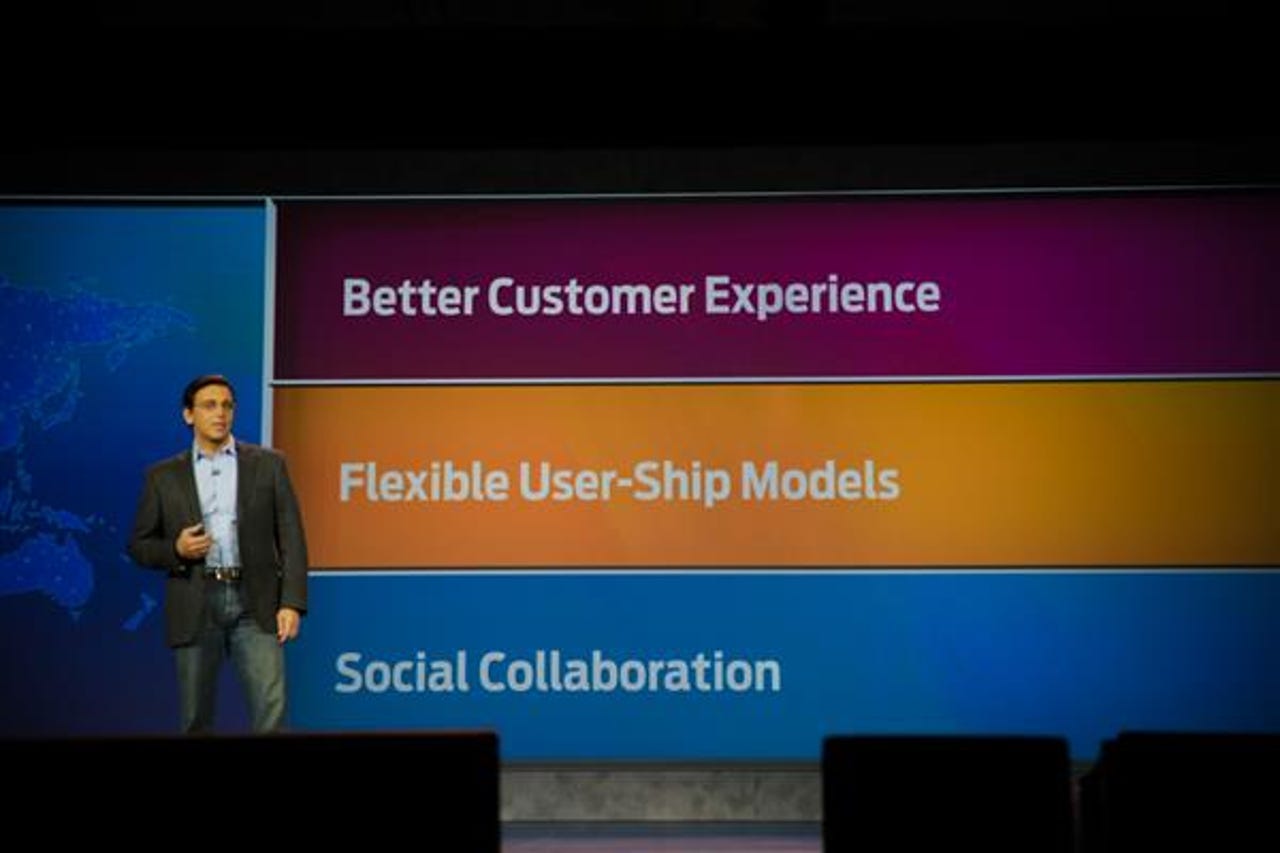Ford's big data experiments: Can it transform the company?

Ford CEO Mark Fields' keynote at CES 2015 shined the light on how the company is thinking beyond vehicles to being more of a transportation analytics outfit. In other words, Ford is a good example of how every company is becoming a tech company.
The challenge for Ford will be absorbing data from cars and people in various mobile experiments and then discovering what can be used to build a business around. Fields talked vehicle quality, insurance costs, car sharing, transportation analysis and solving societal problems.
"Our roadmap must not just include smarter cars, but smarter roads and smarter cities," said Fields.
Close your eyes and you could easily envision GE or IBM giving that CES keynote.
The plan as outlined by Ford goes like this:
- Experiment in the near term with 25 efforts that tackle everything from car sharing, vehicle intelligence, driving patterns, parking apps and insurance. The inputs are data from consumers and volunteers. Ford is thinking beyond whiz-bang efforts such as robotic cars---although it has big plans there too---and sees data as its biggest asset. Ford is gunning for "an all-new model of transportation and mobility within the next 10 years and beyond."
- Targeted implementation in the mid-term. From that data, Ford plans to expand automation in vehicles and develop applications that can work across multiple transportation systems.
- Urban mobility leadership in the long term. Ford wants to lead in integrated transportation systems and bringing automated features to the masses. It's no surprise that Ford's experiments take place in India and China. The win for Ford is the emerging markets and middle class buying vehicles.
"This information is helping us understand how people move, and see patterns that most customers don't," said Fields. "Today's cars produce a massive amount of data, upwards of 25GB of information per hour."
The experiments to kick off this roadmap are notable on a few fronts. In one experiment, Ford is studying the driving habits of 200 employee volunteers using data from in-vehicle senses. The aim is to optimize the car. Another experiment collects performance data to track drivers over time and lower insurance rates. Ford is also dabbling in social efforts such as car sharing and painless parking.
Ford's efforts could yield the following benefits:
- Position Ford as more than a hardware maker.
- Set the company up as a service provider.
- Create a virtuous cycle for Ford as a trusted brand.
- Additional revenue streams over time. Could Ford collect transaction fees for referring good drivers to insurers?
Fields emphasized that Ford's information gathering efforts are all opt-in and customers will always receive services and value for the data.
And now the hard part...
You can't accuse Ford of not thinking big. The automaker was ahead of the industry with its Sync system and rolled out its third major version of the infotainment system.
But Ford is obviously aiming beyond the vehicle cockpit. Ford is aiming to become the Apple of the auto industry. It's not the hardware or software that makes the sale. It's the integration and intelligence between the hardware and software.
The catch is that Ford is going to be overloaded with data. TechRepublic's Jason Hiner chronicled how Ford wanted to be more like a software vendor last year. Hiner noted:
Ford has been an early pioneer in collecting and processing big data and using it in ways to enhance its business. But now, it wants to use big data in the same ways that companies like Google, Amazon, and Facebook use it -- to streamline and customize the user experience.While Ford can build the back-end systems and tools to analyze the data, the real trick is to find the insight in those massive pools of information. Ford will need cultural change, data scientists as well as potentially new approaches. After all, the customer's relationship with a vehicle is inherently emotional. Humans can be downright quirky about their relationships with their autos.
It's quite possible that Ford will have to think a lot more about "thick data" as it conducts its experiments. TechRepublic's Mary Shacklett reported:
The notion behind thick data is that you can't always depend on numerics and algorithms to summarize the 360-degree experience of a customer, or of any other human activity or relationship where unforeseeable factors can enter in.
In other words, Ford will have to think stats and then analyze human behavior too. How do humans react when they're screwed out of a parking spot? How does Ford anticipate that behavior? And what does the data mean for designing autos?
Bottom line: Ford's challenge will be bridging big data and analytics to the human experience. Google, Amazon and Facebook focus on user experiences. It's a different animal than vehicles. And that reality is what's going to make Ford's grand plan fun to watch in the years to come.
More:
- Intel links up Internet of Things agenda with new platform
- Cisco's next stop on Internet-of-Everything roadmap: Connected analytics
- CES 2015: The 4 trends to watch for business professionals
- Five years until the Internet of Things arrives? Why I hope it's a lot, lot longer
- Big data: Five ways to make your project a success
- Data science: 'Machines do analytics. Humans do analysis'
- 'Hadooponomics' to spur Hadoop enterprise adoption in 2015
- IBM takes Watson freemium: Time for bring your own analytics?
TechPro Research:
